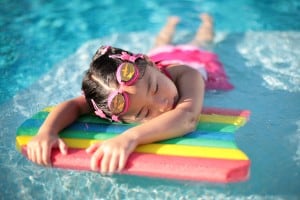
The researchers monitored around 2,000 students in the Gothenburg region. Of those, 408 12-year-olds participated in an intervention: two additional hours of play and motion activities each week, twice the amount of activity that the students did during school. To measure the effects of the intervention, the researchers compared the students’ achievement in national learning goals four years before and five years after the intervention. The students who comprised the control groups were selected from schools that were closely demographically-matched to the school participating in the intervention. All of the schools in the study had comparable numbers of foreign students, family income levels, and parental education.
A larger proportion of students who participated in the intervention met the national learning goals in all three subjects examined—math, Swedish, and English—compared to students in the control groups. Participating in two additional hours of physical education each week doubled the odds that a student met the national learning goals. The control groups did not see similar improvements, moreover, their scores were likely to deteriorate.
The study contributes to mounting evidence that physical activity plays a critical role in academic achievement. Numerous studies have documented the link between increased physical activity and improved academic outcomes.
“The results from the current study are in line with other studies in both animals and humans demonstrating links between physical activity and cognition. We have previously found a strong correlation between cardiovascular fitness, IQ and brain resilience in young adults. Interestingly, we now demonstrate a link between physical activity and school performance in young children adding to this exciting line of research,” commented study author Professor Michael Nilsson.
This research is published in the Journal of School Health.
Previous news in exercise:



 © 2025 Unyte Health US Inc.
© 2025 Unyte Health US Inc.